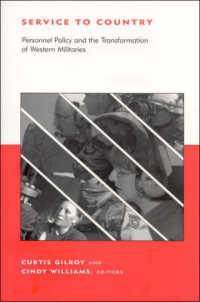Description
Abiotic Stresses in Wheat: Unfolding the Challenges presents the current challenges, possibilities, and advancements in research-based management strategies for the adaptation of wheat crops under abiotic-stressed growth conditions. This book comprehensively discusses different abiotic stress conditions in wheat, and also covers current trends in their mitigation using advanced tools to develop resilience in wheat crops. Chapters provide insight into the genetic, biochemical, physiological, molecular, and transgenic advances and emerging frontiers for mitigating the effects of wheat abiotic stresses. This text is the first resource to include all abiotic stresses in one volume, providing important translational insights and efficient comparison.- Describes advances in conventional and modern breeding approaches in countering the effect of wheat abiotic stresses- Highlights the role of physiological, biochemical and OMICS strategies- Includes coverage of biotechnological tools such as whole genome sequencing, nanotechnology, and genome editing
Table of Contents
1. Wheat and abiotic stress challenges: an overview2. Mitigation of abiotic stress tolerance in wheat through conventional breeding3. Speed breeding: a powerful tool for mitigating abiotic stresses in wheat4. Marker assisted breeding for abiotic stress tolerance in wheat crop5. Epigenetics and abiotic stress tolerance in wheat crops: consequences and application6. Physiological and biochemical approaches for mitigating the effect of abiotic stresses in wheat7. Role of phytohormones in regulating abiotic stresses in wheat8. Abiotic stresses induced ROS production in Wheat: Consequences, survival mechanisms and mitigation strategies9. Regulation of circadian for enhancing abiotic stress tolerance in wheat10. Changes in root behaviour of wheat species under abiotic stress conditions11. Role of photosynthesis in regulating abiotic stress conditions in wheat12. CRISPR-Cas Genome Editing for the Development of Abiotic Stress Tolerance in Wheat13. Functional genomics approaches for combating the effect of abiotic stresses in wheat14. Role of Transcriptomics in countering the effect of abiotic stresses in wheat15. Patterns of protein expression in wheat under stress conditions and its identification by proteomics tools16. Crosstalk between small-RNAs and wheat abiotic stresses17. Combined abiotic stresses in wheat species18. Wheat responses to radiation stress and its adaptive mechanism19. Advancement in mitigating the effects of drought stress in wheat20. Advancement in mitigating the effects of heavy metals toxicity in wheat21. Advancement in mitigating the effects of boron stress in wheat22. Advancement in mitigating the effects of waterlogging stress in wheat23. Advancement of transgenic wheat (Triticum aestivum L.) to survive against abiotic stresses in the era of the changing climate24. Plant-microbes interactions in wheat to deal with abiotic stress25. Role of nanotechnology in combating abiotic stresses in wheat26. Climate change as a cause of abiotic stresses in wheat








